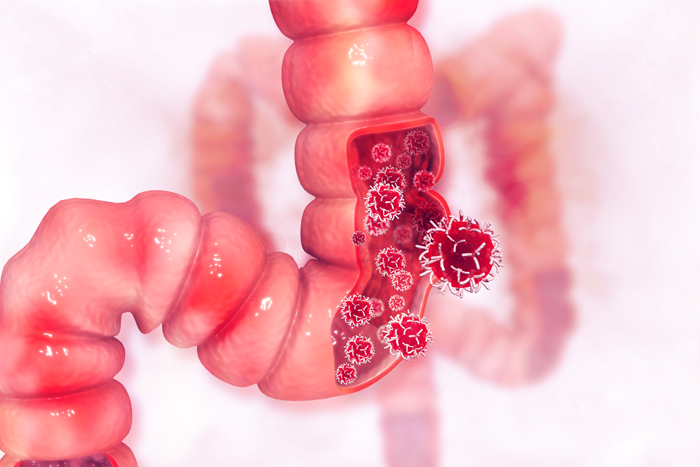Colon Cancer Treatment in Tardeo, Mumbai
Introduction
Colon cancer is the cancer of the large intestine. Although it can be seen in all age groups, older adults are more susceptible to colon cancer. Colon cancer, otherwise called Colorectal cancer, combines two terms - rectum and colon. The colon is nothing but the large intestine, and the rectum is the end part of the colon.

About the topic
Colon cancer develops through polyps, a small non-cancerous cluster of cells that may or may not develop into cancer. The symptoms of colon cancer are difficult to observe in the initial stages as polyps are small. Hence, frequent screening tests are recommended to identify polyps before they become cancerous.
What are the symptoms?
You can look out for the following symptoms to distinguish colon cancer from other common illnesses:
- Constant weakness and fatigue.
- Frequent attacks of diarrhea.
- Persistent constipation.
- Persistent weight loss.
- You feel that your bowel does not empty.
- Frequent discomfort in your abdomen, including gas trouble, pain, and cramps.
Symptoms are not visible in most cases in the early stages, and even though they appear, they may vary depending on the size of your cancer cells and the location of these cells in your large intestine. Hence, visit the best gastroenterologist to identify your condition.
What are the causes?
Although most accurate causes are not yet determined, the following are considered to be the common causes of colon cancer:
- Sometimes, healthy cells in your colon may mutate to form cancerous cells, which in turn multiply in number to infect your color with cancerous infection.
- A tumor may also sometimes turn out to be cancerous.
- Family history is another typical flag for colon cancer.
- Cancerous cells from other parts of the body may invade and infect healthy tissues.
When to see a doctor?
You have to visit your colon doctor if you find any of these symptoms:
- If you notice any of the above symptoms.
- If you experience the symptoms for extended periods.
- If you have a family history of colon cancer.
Request an appointment at Apollo Hospitals, Tardeo, Mumbai.
Call 1860 500 2244 to book an appointment
What are the risk factors?
The following are the risk factors associated with colon cancer:
- People above the 45 years age group are considered vulnerable to colon cancer.
- People with inflammatory intestinal diseases like ulcerative colitis or Crohn’s disease are also susceptible to colon cancer.
- Colon cancer is hereditary. Hence, if anyone from your family had colon cancer before, you are more susceptible to it.
- Unhealthy diets including deep-fried, high-fat, and high-calorie food may cause colon cancer.
What are the treatment options?
Colon cancer treatment options vary with different factors. The following are the treatment options available for colon cancer:
- Surgery: Early detection of cancer cell growth can help in the surgical removal of these cells or polyps. If your cancer has spread to parts of the colon or rectum, your doctor may feel the need to remove a part of the colon or rectum too. Surgery options include endoscopy, palliative surgery, and laparoscopy.
- Chemotherapy: Chemotherapy is a process of killing cancer cells with the help of medicinal treatment. Chemotherapy is also used after the surgery to remove any traces of cancer cells.
- Radiation: Radiation is a process of using beams of energy targeting the cancer cells to destroy them
Conclusion
If given timely treatment, recurrence of colon cancer is relatively low. Frequent checkups and diagnosis are central to early detection to avoid cancer growth. Do not delay the diagnosis if you suspect the symptoms to start with early treatment and reduce the risk.
Your doctor may prescribe a CT scan, an MRI scan, Colonoscopy, and ultrasound scan to diagnose colon cancer
People who follow unhealthy diets, including high-fat and high-calorie food, without sufficient vitamins and nutrients are more susceptible to colon cancer.
No. Colon cancer is not contagious, but it is hereditary. If you have a history of colon cancer in your family, it is essential to frequently visit the best colon surgeon to diagnose your health condition.
Symptoms
Our Top Specialities
NOTICE BOARD
CONTACT US
CONTACT US
 Book Appointment
Book Appointment


.svg)
.svg)
.svg)
.svg)








